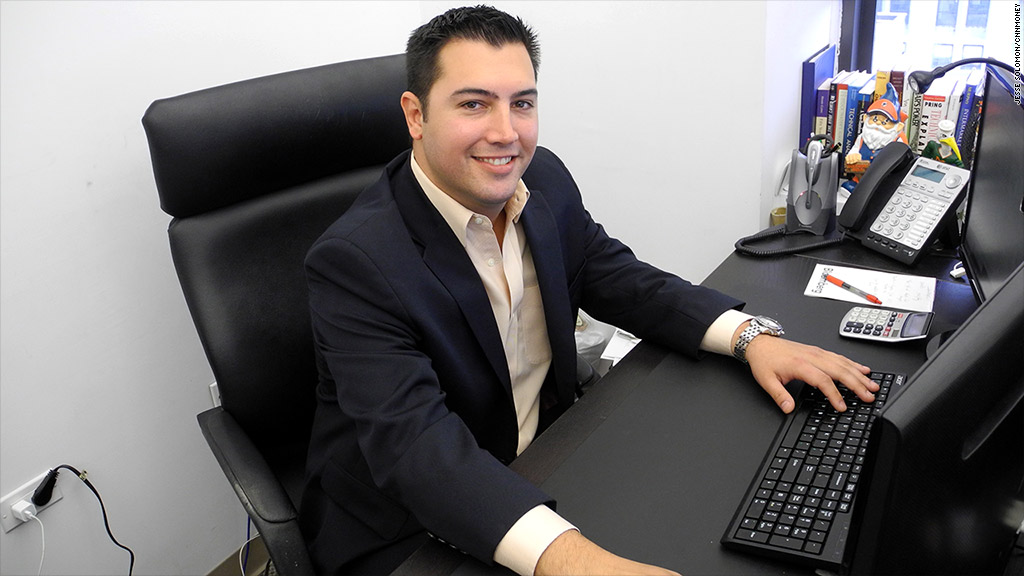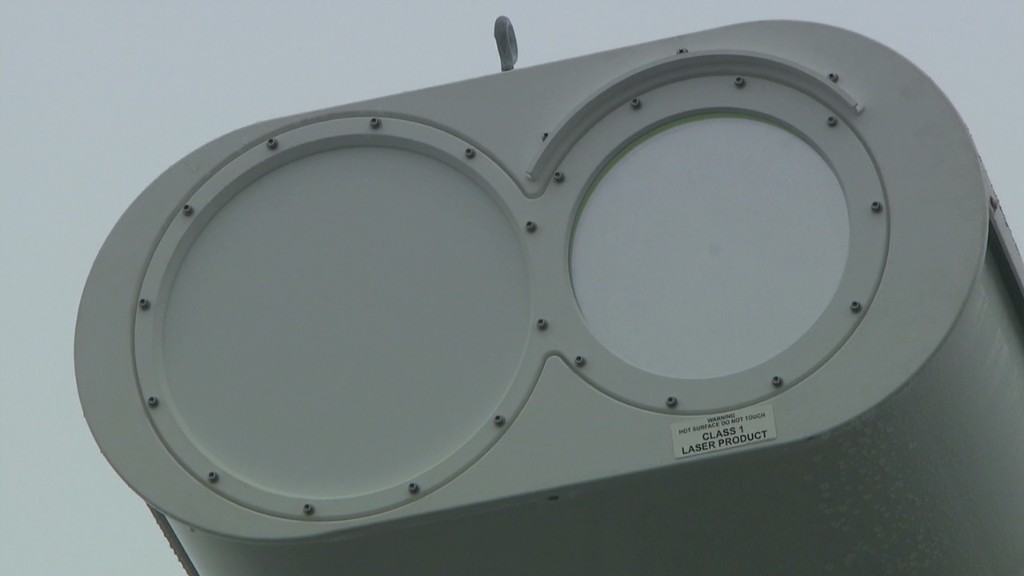
Situated on the 46th floor of a gleaming office tower in lower Manhattan, Mike Winston is running his hedge fund empire.
But he's no Gordon Gekko.
Missing is the sleek trading floor with its supercharged technology and legions of shouting traders. Picture instead: About 250 square feet of rented office space with four computer monitors and an intern.
"I think we're scrappy," says the 37 year-old Winston, who launched Sutton View Capital in September 2013. "We're punching above our weight."
Winston is one of many budding hedge fund managers sprouting up on Wall Street trying to make a name for themselves in an ultra competitive industry known for its make or break mentality.
Convincing investors to pony up cash for new firms isn't easy. The top 500 hedge funds control more than 90% of the industry's assets, according to alternative investing research firm Prequin.
Related: Top 10 highest paid hedge fund managers
These aspiring fund managers have to deal with information technology, human resources and navigating the increasingly complex regulatory environment -- on their own.
CNNMoney caught up with a few young gun hedge fund managers to see how they do it.
Investors have to trust you: Who do you call when you need to raise millions of dollars? Family, friends, and former colleagues, explains Winston, who previously worked as a junior portfolio manager at the mega hedge fund Millennium Management.
"They say 'I know how you think, I like what you do,'" he says. "It's a trust thing too."
Related: What geopolitical risk? Hedge funds bet on Russia
With his personal connections invested in his fund, Winston has skin in the game. Still, he doesn't let emotion get in the way of doing his job.
"You have to be honest about your feelings. If things are bad, I feel bad, but I'm trained to act rationally," he says.
Unlike Silicon Valley, youth works against you on Wall Street: J.C. Parets is always hustling. The 32 year-old market technician and founder of Eagle Bay Capital is in the process of raising $10 million to launch his second fund. That's small potatoes in the hedge fund world, where assets under management often surpass the billion dollar mark.
Still, he has a large Rolodex of finance types, all of whom are prospective investors.
On a recent weeknight, he met up with some friends who double as investors to have drinks, smoke cigars, and watch the NBA playoffs. In addition to the chance to unwind, it was a business opportunity. "I say listen, if I do well for you, you tell your buddies," he says.

While he admits some investors will bring up his relatively young age -- a "32 year-old punk," he jokes -- Parets doesn't see it as a factor.
"I don't care how long you've been on Wall Street, you haven't seen anything I haven't. I traded through 2008," Parets declares, referring to the financial crisis.
And as long as he makes them money, investors are happy.
"I walk into work scared to death every day to lose money. Investors like that," Parets claims.
Branding is king: Although Winston and Parets don't technically advertise due to regulations that make it difficult for hedge funds to do so, they are both working hard to build their brands.
For Winston, that means posting trading ideas on research websites catering to the investment community. After submitting his opinion on MGM (MGM) to one such site late last year, he was invited to make a three minute pitch at an investing competition hosted by Columbia Business School, which was great exposure.
Related: Macau's gambling industry dwarfs Vegas
Parets, for his part, runs a blog, allstarcharts.com, where he frequently showcases his latest market insights. It's been a phenomenally successful tool. He often gets email inquiries from interested investors, and even gets invited on television to talk about the ideas he puts up on the site.
"It's like my own personal diary, and people read it," he says.
Running an actual business: "The downside of running your own company is that you have to run your own company," Parets says. "If the phones don't work, who else is going to take care of it?"
And with strict compliance requirements for hedge funds, the legal work alone requires a great deal of energy, Winston asserted. Still, he says it's worth the hassle.
While they're a long way from Silicon Valley, both men said they harbor a startup mindset when it comes to managing their funds. But this being Wall Street, there are obvious differences.
"I don't wear shorts, flip flops, and t-shirts to work," Parets said. "I have to dress the part."


